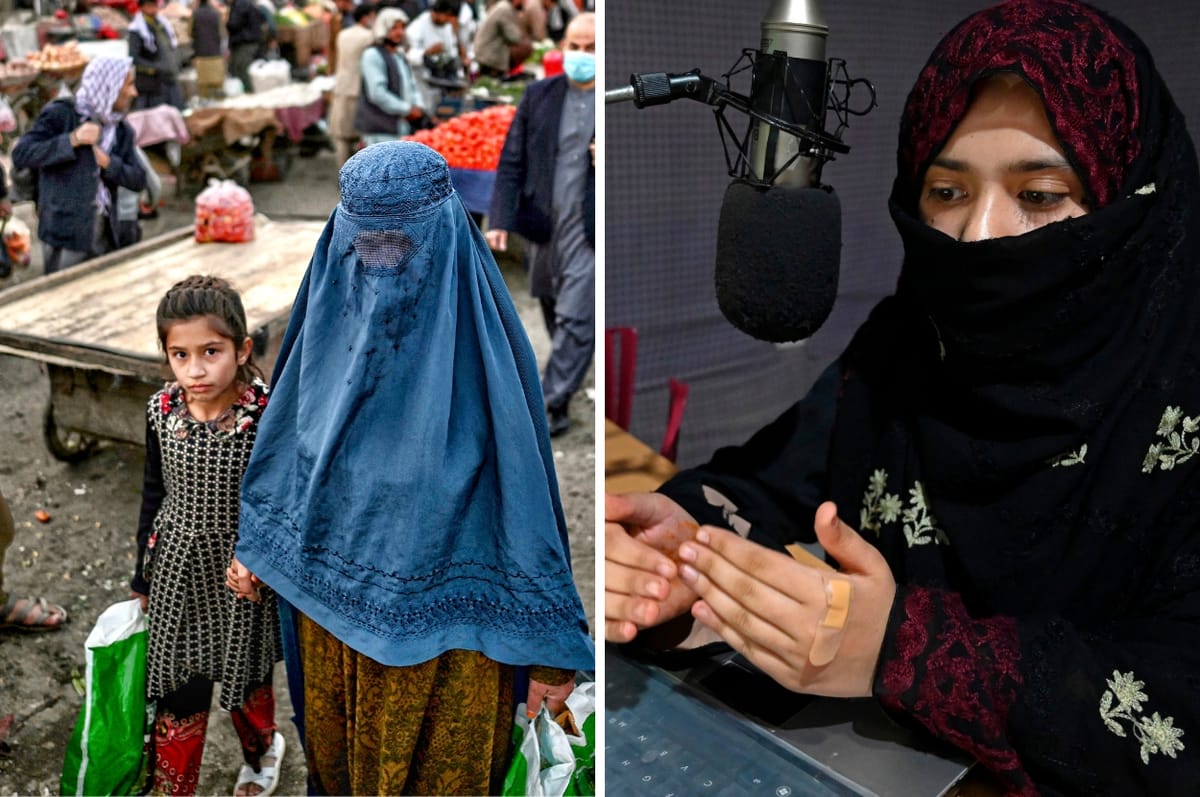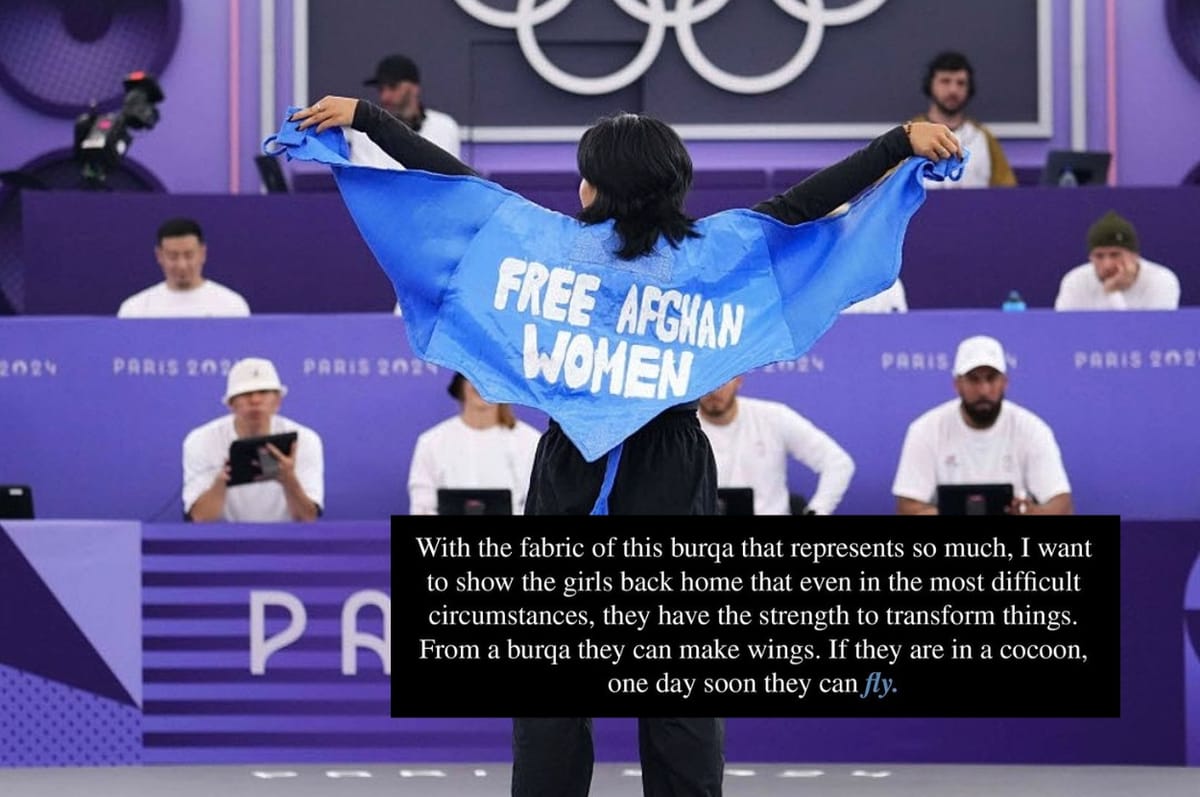Women In Afghanistan Are Singing To Protest The Taliban Banning Them From Speaking Aloud In Public
Afghan women are sharing videos of them singing to protest against new Taliban laws that bans women’s voices in public.

Afghan women are sharing videos of them singing to protest against new Taliban laws that bans women’s voices in public.
The new laws were issued on Wednesday, Aug. 21, by the Taliban's "morality" ministry, and require women to cover their entire bodies, including their faces, in public to prevent "temptation.”
Women are banned from wearing "thin, tight, or short" clothing and must cover themselves fully in front of "non-Muslim" men to avoid "moral corruption."
The Taliban has also made it illegal for women to speak, recite, or sing in public, saying that women’s voices are "intimate" and should not be heard by others.
If women break the laws, they may face verbal warnings, having their property confiscated, being detained or even taken to court "for further action"
Women in Afghanistan are now posting videos of them singing as a new form of protest to the latest attack on women’s rights despite the risks of being punished.
In one video, a woman dressed in a black burqa is seen singing and then stating, "My voice is not 'aurat',” using a word referring to something that should be hidden from unrelated men."
"I am not that weak willow that trembles in every wind. I am an Afghan woman; it only makes sense to cry. Reminding myself of the day, I will break free from the cage to escape from this solitude and sing with abandon," another woman can be seen singing in the mirror in another video.
The song is a poem by Afghan woman poet Nadia Anjuman which was turned into a song by Afghan woman singer Shahla Zaland called “Dokhte Afghan”.
Afghan women abroad have also joined the movement.
Hoda Khamosh, a journalist and poet now in Norway, also shared a video of her singing, "With a gun, you cannot silence my voice. We will defeat you and all those who seek to erase us."
Other videos showed groups of women singing together, hashtagged "#MyVoiceIsNotForbidden" and "#NoToTaliban."
The new law has been widely condemned by rights groups, who are calling for them to be immediately revoked.
Amnesty International called the laws as "another brazen attack on human rights," while the United Nations called them a “distressing vision” for Afghanistan’s future, warning that they will create an environment of “fear and intimidation” for women and girls.
More On Women In Afghanistan








